Influences from Afar
| Extended Program Notes & Bios
INTRODUCTION
Mykola Lysenko was known as the father of modern Ukrainian classical music. His prolific life’s work laid the foundation for the further development and expansion of Ukrainian musical culture.
Our featured soloist, Anna Sagalova, arrived in Vancouver with her son in June 2022 after a spine-chilling journey to flee the war in Ukraine. A well-known teacher and performer in her own country, Anna is committed to raising awareness and funds in support of her university in Kharkiv, which remains open even after extensive bombing. She performs Ravel’s piano concerto, which is heavily influenced by American jazz and Basque folk music, both expressions of culture and resistance.
Dvorak’s Symphony No. 7 was written in part to reflect the political struggles of the Czech nation in the late 19th century. Dvorak was inspired by the capacity of the Czech people to display stubborn resistance to political oppressors, a reminder of the resistance of today’s Ukrainians.
This concert considers the troubled state of the world: through music, cultural exchange, and inspirational performance. As all our lives are influenced from events from afar, composers have translated these influences into music that challenges us, and can also provide a sense of hope. Tonight, we bring together music created by three European composers, each influenced by patriotism and conflict.
-
TBD.
-
Allegramente
Adagio Assai
Presto
When we think of Maurice Ravel, images of the elegant French music scene in Paris often come to mind. However, his Swiss father and a Basque mother both left a significant mark on his remarkable artistry.
Ravel’s ambitions for a concerto exploring Basque themes go back as far as 1906. He revisited these ideas in 1913 but ultimately set them aside during the tumult of 1914. This concerto, in particular, reflects the vibrant spirit of his four-month tour of the USA and Canada in 1928. He finally completed this G major masterpiece in 1931.
Despite the demanding nature of this concerto, Ravel himself was not particularly known for his piano prowess, nor was he primarily a composer for the instrument. He entrusted the premiere to Marguerite Long, to whom he dedicated the work.
What truly shines in Ravel’s genius is his orchestral savvy. From the electrifying snap of the opening whip crack in the first movement to the sparkling harp harmonics, the exquisite interplay of piano, cor anglais, bassoon, muted trumpet, and more transforms the entire piece into an orchestral tour de force. Ravel claimed that composing the second movement almost took a toll on his life, yet the craftsmanship flows effortlessly. The third movement bursts forth with vibrant energy, placing equal demands on both the orchestra and the soloist. And then, just like that—POOF! It concludes as abruptly as it begins, leaving listeners breathless and craving more.
-
Allegro maestoso
Poco adagio
Scherzo. Vivace
Finale. Allegro
Dvořák’s music embodies a rich tapestry of ethnic influences, much like Ravel. However, where Ravel melded jazz, Basque, French, Spanish and French music, Dvořák drew inspiration from the folk traditions of his Czech, Bohemian, and Moravian heritage, blending these vibrant elements into classical structures.
With its dramatic intensity and reflective depth, this symphony truly stands out on its own. In 1884, Dvořák received a commission from the Philharmonic Society in London to compose a new symphony, coinciding with his honorary membership to the organization—one that had previously commissioned Beethoven for his iconic Ninth Symphony. Eagerly embracing this challenge, Dvořák sought to enchant English audiences and craft a piece "capable of stirring the world"—a lofty ambition marked by a heartfelt prayer for its success.
The world premiere took place on April 22, 1885, at St. James’ Hall in London, with Dvořák conducting. He penned a letter to his dear friend, Václav Juda Novotný, sharing in excitement, “My dear friend! By the time you read this, you will likely have already heard about my reception here in London. The symphony was met with warm acclaim, with the audience welcoming me with boisterous enthusiasm. There was pure pandemonium after every movement, a thrilling experience that mirrored the excitement back home! But really, what matters most is that, despite only having two rehearsals, the symphony performed beautifully. It’s such a shame you couldn't witness such a remarkable performance!”
Anna Sagalova
Anna Sagalova is an internationally-recognized concert pianist, who was granted the status of Honoured Artist of Ukraine for her achievements and contributions to Ukrainian culture.
Anna studied with the People's Artist of Ukraine, Professor T.B. Vyerkina at the I.P. Kotlyarevsky National University of Arts in Kharkiv, and completed a postgraduate course with G. Otto at the University of Music Franz Liszt in Weimar, Germany. She also recently earned a Doctoral degree in Arts from the Kharkiv I.P.K. National University.
Anna is a frequent soloist with symphony orchestras throughout Ukraine under the baton of conductors from Ukraine, Canada, USA, Switzerland, Great Britain, Austria. She has given many recitals throughout Europe, had her performances broadcast on radio and television, and recorded two compact discs. In 2016 Anna was proud to be elected as Chairman of the Advisory Committee to the Ministry of Culture of Ukraine, the “Council of Young Scientists.”
An accomplished educator, many of Anna’s students and graduates are winners of international music competitions. She currently teaches at the Vancouver International School of Music in Surrey. Since arriving in Canada in 2022, Anna has maintained an active concert schedule across the country, with a goal to help Ukraine and to raise awareness of Ukrainian classical music.

